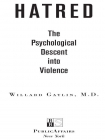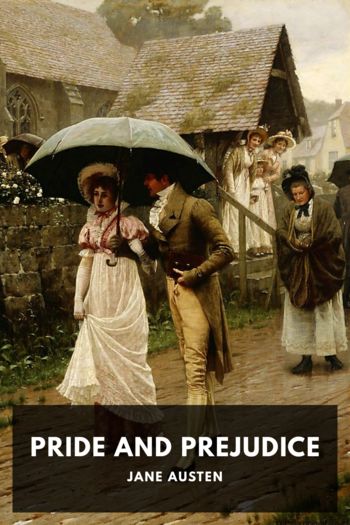Hatred by Willard Gaylin (best manga ereader txt) 📗

- Author: Willard Gaylin
Book online «Hatred by Willard Gaylin (best manga ereader txt) 📗». Author Willard Gaylin
The intellectual and creative use of knowledge—the foundation of our intelligence and imagination—has liberated most of us from spending our days absorbed in the struggle simply to stay alive. Through knowledge we have woven an elaborate cultural tapestry that defines modern existence beyond mere grubbing for survival. Through the exercise of freedom we have suffered unaccountable pain, but we have been able to lift ourselves out of the caves to traverse the very heavens.
But with our special knowledge we know how perilous that existence is. We know that however carefully we protect ourselves from predator or disease, death awaits us all. Animals fear the predator, but they do not know death. They cannot experience the human agony caused by the certitude of our own death. Cautious or not, lucky or not, privileged or deprived, we all die and the world goes on without us.
Many psychologists place the knowledge of death—and our need to live with this dreadful burden—at the forefront of our lives. How can something so central, so pivotal, to our own personal world—our self—be but an ephemeral and passing phenomenon? How can we be disposable? Such a narcissistic injury, such a blow to our own inflated self-worth, is simply not allowable. Since our own knowledge has brought us to the brink of this abyss, perhaps our imagination and intelligence can keep us from falling in.
The psychological term for closing your eyes to a reality is “denial.” Ernest Becker, in his book The Denial of Death,83 viewed the world of neuroses as an elaborate means to disavow our own death. Many of the irrational anxieties that plague our existence he explains as mere displacements from the transcendent terror of our own inevitable end. Freud postulated the human invention of religion, with its promise of eternal life, as the ultimate denial of death. Freud saw religion as a human illusion designed to comfort us in the existential world of vulnerability and anxiety that we occupy.84 The promise of the form of immortality known as an afterlife may be seen as an elaborate structure to support the denial of death. The martyr trades the irrelevancy of a temporal and degraded life on earth for a permanent position at the side of God through eternity. The paradox is that except for the occasional martyr, most of us—including believers—cling tenaciously to life and try to protect ourselves against the terrors known and unknown that threaten us.
Known terrors are always more bearable than the dread of the unknown. What is knowable may be controllable. We use anticipation to protect ourselves by making contingency plans in advance of the impending disasters. When the reservoirs are dangerously low, we restrict water consumption. We store the bountiful harvests in anticipation of droughts, thus preventing famines. We arm ourselves in the presence of the predator; secure food supplies and stake out territories that supply them; protect ourselves from the elements; and in this modern age of medicine, take care of our health. Above all, we plan and anticipate. But there is no way that we can prepare our psyche to accept the unknown and unknowable. We, therefore, find means of rationalizing the unknowable.
The greatest perceived threat is always the unknowable one, which is epitomized by one of the earliest fears of childhood—fear of the dark. Even this fear represents a reparative step. It defines a way out. If that which one fears is literally “the dark,” one can always turn on the light. With the intellectual and metaphoric darkness, we need symbolic candles. The evolution of the varying symptoms of neurosis, as described in Chapter 7, can all be explained in terms of controlling the unknowable by adding light and understanding. Neurotic behavior can be viewed as an attempt to control an existential, or free-floating, anxiety through various displacements and rationalizations.
All of us have felt anxious, as distinguished from worried. We worry about events. We are anxious about what we do not know. But for most of us, the anxiety we occasionally experience is similar to the temporary feelings of depression that we endure. We know that this vague anxiety—extending in severity from unease to dread—will pass. With some people, the anxiety will not pass. This is the state we psychiatrists refer to as an “anxiety neurosis.” Such patients are forced to use the reparative devices of neurotic symptoms to help limit their anxiety. The phobic avoids the source of his anxiety; he decides that an animal is the true source of his fear and he stays away from that animal. The obsessive eliminates the source of his anxiety; if every aspect of life is managed and controlled, there can be no surprises, and thus there will be no uncontrollable events. The delusional explains it; that which seems threatening is really a part of a grand design to exalt rather than to reduce one. But all neurotic repairs eventually fail, as reality inevitably breaks through, necessitating newer distortions and displacements.
Hatred can be understood in the language of repair and symptoms. Hatred is a neurotic attachment to a self-created enemy that has been designed to rationalize the anxiety and torment of a demeaning existence. It is a defense against the hopelessness of despair. Hate-driven people live in the distorted world of their own perceptions. Normal people also live in the perceived world rather than the actual one, but saying that both the bigoted hater’s perceptions and the normal person’s perceptions are subjective does not eliminate the real distinction between those perceptions. It does not morally equate the hater with us. Hatred is their disease at this point, and we normal people must protect ourselves against it. To do so we must appreciate its complexities.
Hatred must not be perceived as a mere extension of the transient feelings of rage that we all have experienced. It is an emotion, but beyond that, it is also a psychological state that defines the self in terms





Comments (0)